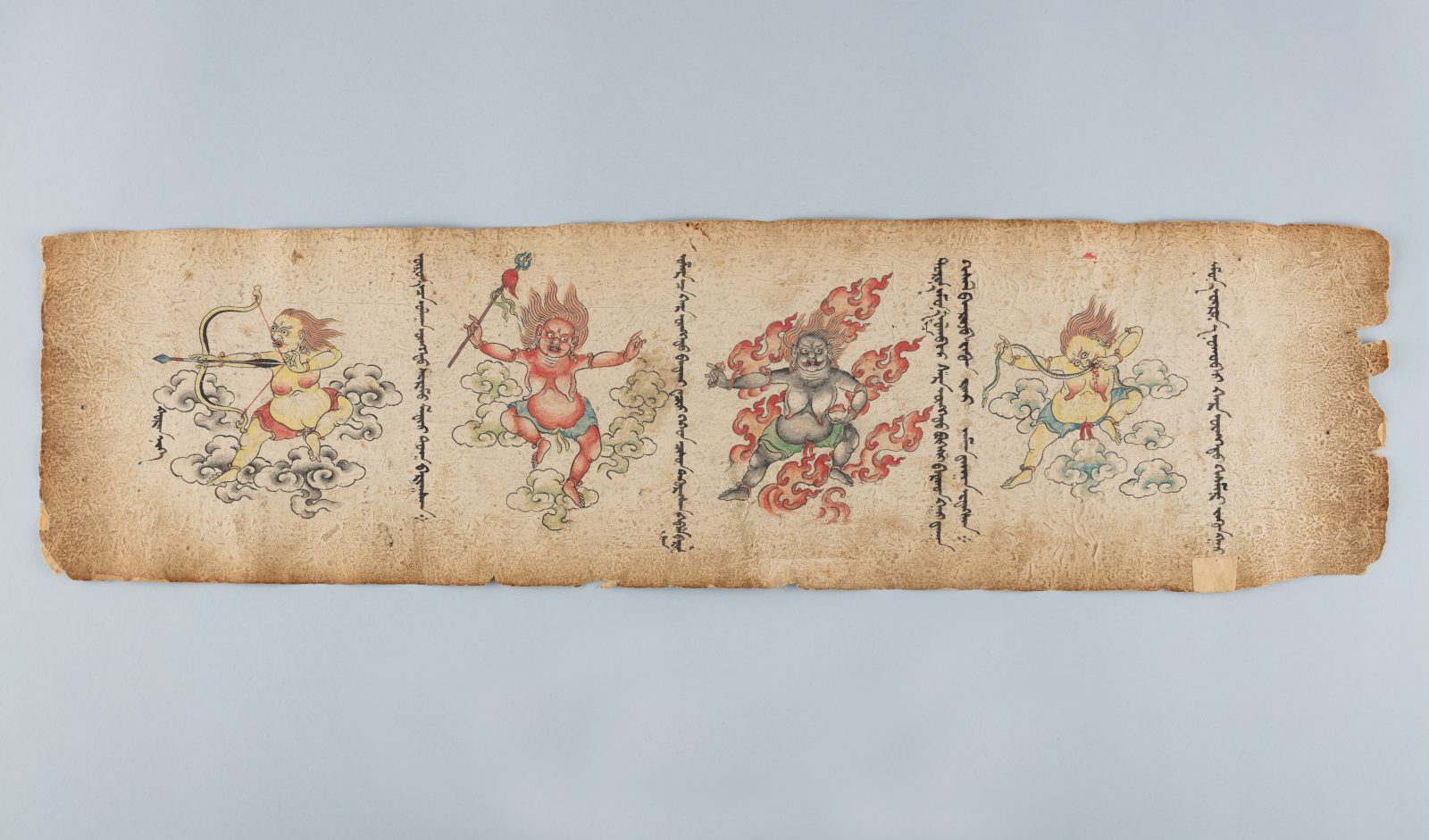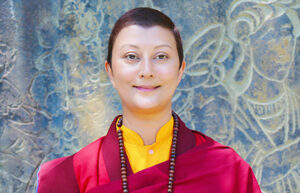

This week’s meditation session is led by Lama Arai Drolma and the theme is Ritual. The guided meditation begins at 13:35.

A Folio from a Manuscript of The Liberation Through Hearing in the Intermediate State (Bardo Thodrol); Mongolia; 19th Century; Pigments and ink on paper; Rubin Museum of Himalayan Art; C2004.37.3.21
The Bardo Thödrol is often referred to in the West as the Tibetan Book of the Dead. It is a treasure that was hidden by Padmasambhava, who brought the wisdom of Buddhism to Tibet in the eighth century. It was revealed by a treasure revealer named Karma Lingpa in the 14th century. This remarkable manuscript version of the text was made in Mongolia in the 19th century. Although many sacred Tibetan Buddhist books are printed using traditional woodblock printing techniques, handwritten books became popular in 19th century Mongolia.
Many associate the bardo as the state in-between life and death, however, the bardo also refers to any liminal state, including the midpoint of dreaming and waking. Bardos are junctures at which the possibility for awakening, or liberation, is amplified. As we behold this beautifully illustrated manuscript, let’s reflect on how we can navigate bardo periods of transition in our own lives and come to terms with change.

Lama Aria Drolma is an ordained Buddhist teacher in the Karma Kagyu tradition of Tibetan Buddhism, who has completed over a decade of monastic study and meditation training. She is a graduate of the traditional Tibetan Buddhist retreat program spanning three years and three months, an advanced cloistered meditation training program at Palpung Thubten Choling Monastery, New York.
Lama teaches worldwide, leading retreats, workshops, and corporate meditation programs and is a popular guest speaker at universities and organizations. She emphasizes Vajrayana Buddhism and Buddhist principles, making them relevant in our everyday lives, helping us to cultivate loving kindness and compassion, and bringing about a transformation of contentment and a genuine sense of well-being.
Get the latest news and stories from the Rubin, plus occasional information on how to support our work.